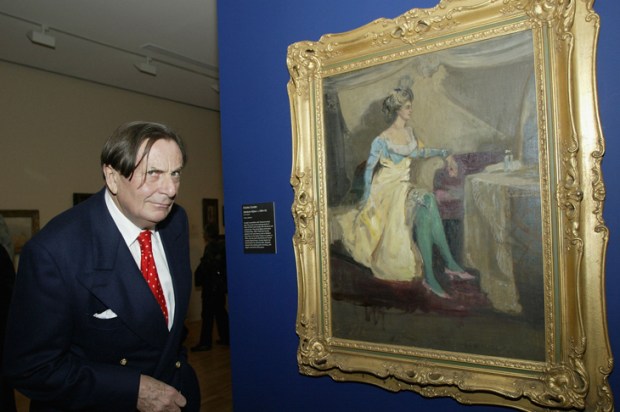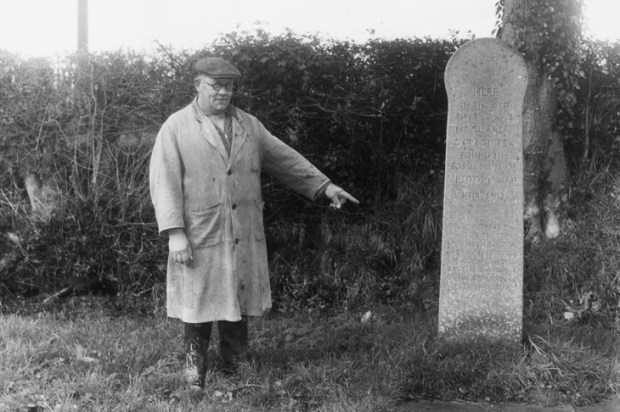It is a sad irony that the Irish singer Sinéad O’Connor died just after the movie Barbie was released, because the feminist philosophy of ‘patriarchy’, which underpins the movie’s plot, is a cause of her tragic death at the relatively young age of 56. To understand the feminist idea of ‘patriarchy’, think of what ordinary people believe is common sense, and then reverse the logic. One reason our contemporary culture is in turmoil, where everything is upside down, is because feminists were so desperate to appear intellectually original, that they denied the rational, and embraced an idea that everyone, across history and culture, had rejected – subjectivism. Men invented reason, logic and science, all of which, according to feminists, are inherently misogynistic towards women, who have different ways of understanding the world. This soft-headed anti-logic, guided by equity, has had a terrible effect on our institutions; and Sinéad O’Connor’s life is a quintessential example of someone who rejected the patriarchy and paid a terrible price. The similarities between O’Connor’s life and the feminist agitprop of the Barbie movie are uncanny, but in a heartbreaking way. (There are many victims, and people in the cult are oblivious to their moral grandstanding).
The matriarchy featured in the Barbie movie is a simulacrum of a perfect society, where actions have no consequences, and no one needs to make a difficult decision. It’s the feminist-approved version of the Stepford Wives. The logical substructure of the movie is that women can have it all, and that trade-offs, an insight of economics, are nothing more than patriarchal discrimination. (The real-life iteration by feminists of the debunked claim of the gender pay gap is a vital clue in this regard). The fact that the feminist notion of patriarchy is unrealistic nonsense, though, has not limited its impact, because the theory of patriarchy has been disseminated throughout our cultural landscape for fifty years, and it’s now the logic which underpins our institutions. In the current climate, you’re no more of a rebel or an original thinker, when parroting this nonsense, than if you said Italians like pasta.
The consequences, however, of believing in patriarchy, of which Sinéad O’Connor’s life is a perfect example, is the rejection of reason for ‘women’s ways of knowing’ or ‘lived experience’. Patriarchy, then, is a repudiation of everything that an ordinary person believes is logical, including, ironically, the common sense of everyday women. Feelings, essentially the emotions of the moment, trump empiricism and rationality.
The problem, for feminists, though, is that there has never been a matriarchal society, and if one existed, it would be a disaster. Patriarchy is the default across all societies because men and women, when left unhindered, make countless decisions that, unencumbered by government, create patriarchy. It’s simply the common sense of ordinary people throughout history making optimal choices for themselves and their families. This has been the case in every society. Mere survival puts constraints on both men and women.
The essence of the real patriarchy, and not the feminist phantasmagoria, though, is that men must believe that they are the biological fathers of their children. Different cultures have created norms to manage this situation. Women have been as engaged in this process as much as men, so the idea that it’s a way of men controlling women, is untrue.
The logic of why patriarchies work, and matriarchies don’t, rests on thousands of years of hard-won knowledge. Men love women more than anything in their lives. Men leave their parents, siblings and friends for the woman they love. The only thing a man can possibly love more than a woman is his children.
Love, though, has a dark side. A man will kill for the love of a woman or to secure the welfare of his children. Creating an environment that is illogical and where the boundaries of rational, common-sense behaviour are blurred is something that societies try to avoid, because a society where men are unmoored from familial obligations, which are based on honesty and trust between the sexes, is a society mired in anarchy. Playing with emotion, sex or love is touching fire. Wise people handle the danger carefully, feminists not at all, because they refuse to acknowledge that women as well as men have obligations and are responsible, like men, for the world they create.
Five years ago, Sinéad O’Connor posted a harrowing video of herself in a motel in New Jersey. In the video, a distraught and obviously mentally anguished O’Connor said her family had abandoned her. That she had no awareness of why this had happened spoke volumes about her limited understanding of human psychology. Whether her tragic lack of self-awareness was caused by a psychological condition, which was genetic or was induced by a traumatic childhood, (or both), whether she had a narcissistic need for attention, or whether she was simply indifferent to the chaos she had created around her, is irrelevant. What is important is that she had, by choice or accident, acted as a stereotypical feminist behaves who rejects the patriarchy. Sinéad O’Connor had four children with four different men. She married four men, none of whom was the father of her children. That’s eight men and four children, all of whom, at some time, were vying for her affection. That’s a ticking nuclear bomb of suspicion, jealousy, gossip, dislike, possibly even hatred, waiting to explode. It also means that these eight men, eventually just gave up on her because she was the centre of a universe of trouble. She rejected the patriarchy, (in other words, common sense), behaved sub-optimally, and, in the end, the extended, ‘blended’ family she created, lapsed into chaos and tragedy. Matriarchy doesn’t work for men, women, and especially children.
In the cinematic world of Barbieland, Barbie and her inclusive, indigenous, anti-white, anti-male, friends use sex to bring down the patriarchy and reinstate the perfect society of the matriarchy. (This, by the way, is a shocking example of systemic misogyny; women would never use their sexuality to manipulate men). The film, though, is fiction; matriarchies don’t exist, and if they did, we’d live in a hell of our own making, just like poor, sad Sinéad O’Connor.
Got something to add? Join the discussion and comment below.
Get 10 issues for just $10
Subscribe to The Spectator Australia today for the next 10 magazine issues, plus full online access, for just $10.
You might disagree with half of it, but you’ll enjoy reading all of it. Try your first month for free, then just $2 a week for the remainder of your first year.














Comments
Don't miss out
Join the conversation with other Spectator Australia readers. Subscribe to leave a comment.
SUBSCRIBEAlready a subscriber? Log in